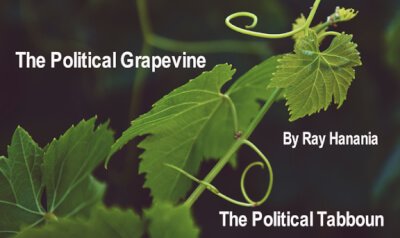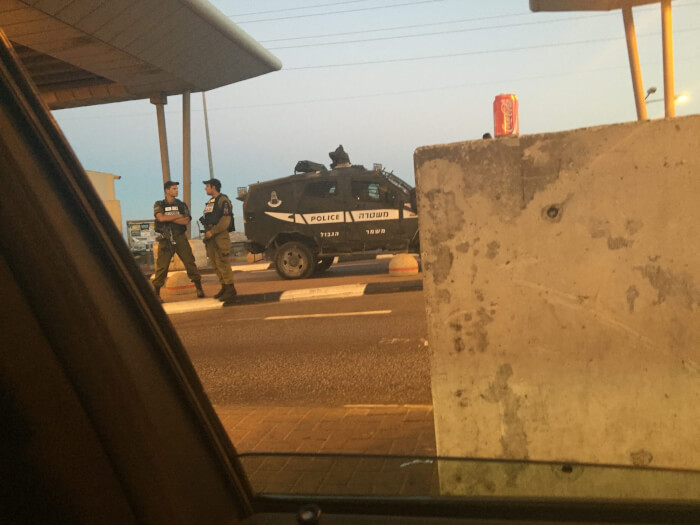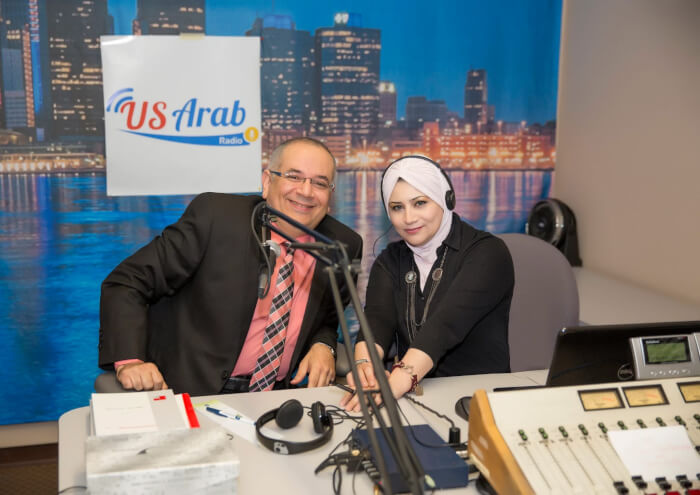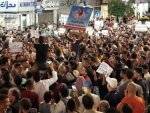France racism at Arabs grows. Growing racism climate in the continent that earns Corsica nationalism, worried the French authorities
By Abdennour Toumi
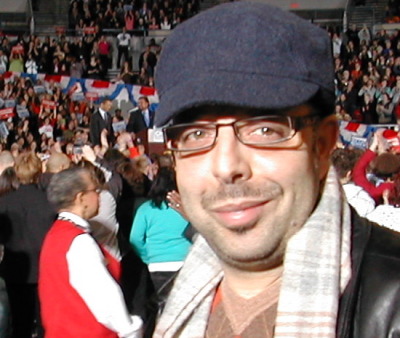
The ugliness of anti-Arab sentiment on the continent has overflowed to the Island of Beauty, Corsica. Last weekend anti-Arab protests broke out in Ajaccio following an ambush of firefighters and police by hooded youth in the Emperor’s Gardens (Cité les Jardins de l’Empereur). Injuries sustained by both police and firefighters were serious.
In response to this brutal outbreak local inhabitants seiged the neighborhood, a low-income housing estate whose inhabitants are mostly of North African descent, chanting violently: “Arabi fora (Arabs go home) … this is our home …” The protesters then went on to trash a Muslim prayer hall, destroying copies of the Koran. Their angry outburst, overtly against Arabs, bore nationalistic, xenophobic and racist connotations.
Quickly Mr. Gilles Simeoni, Chairman of the Executive Council of Corsica, and Mr. Jean-Guy Talamoni, President of the Corsican Assembly, appeared on national TV programs to denounce the protests: “we are here to speak to avoid any amalgam between Corsican nationalism, xenophobia or racism.”
The local population had reacted to the provoking behavior of the youths responsible for the initial outbreak (later identified and arrested by the police) with a large-scale verbal assault, terrorizing the neighborhood and its hard-working inhabitants.
Racist graffiti in Corsica, France: “Arabi fora — Arabs go home”Historically the Arab population came to the “Island of Beauty” in the early ’60’s seeking a better life in a region close to their own in climate, sensibilities and taste. A large contingent of Algerian-French, mainly the so-called piers-noirs, arrived in the aftermath of Algerian Independence in 1962, along with pro-Algerie-Française natives and Moroccans who had fled for reasons of economic injustice and came looking for work in agriculture and the maritime industry.
During World War ll, thousands of Moroccan “tirailleurs” (battalions of shock) landed to liberate the Island of Beauty from the Nazi forces. In the mid-60’s and ’70’s the Algerian and Qadafi regimes were severely criticized by the French authorities and media for aiding the Corsican nationalists with money and training. Hence the Corsicans were so inspired by the FLN guerrilla tactics that they symbolically borrowed the FLN acronym and made it their own, FLNC (National Liberation Front of Corsica).
De facto, Corsica was not explicitly charmed by the FN, or even its blue-marine tide, during the last decade of the FN racist-frenzy message. The FN vote in the island registered a rise of 4.75%, lower than the national 10% rise on the continent in France’s thirteen regions.
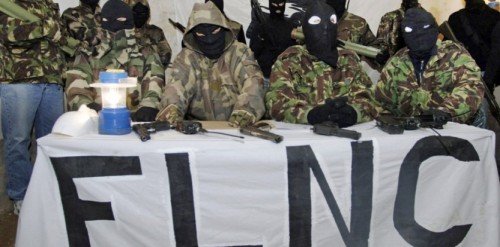
Some places on the continent openly demonstrate a racist attitude, consequently there are neighborhoods that feel they are living under an apartheid regime in terms of the municipalities’ social programs and congenial environment.
The events of last weekend are not the only ones to underscore the current xenophobic outbreak. In the weeks following the Charlie Hébdo incident, during the football match between PSG and Bastia, fans of the local Corsican team wrote on a large banner: “Qatar terrorist” in reference to the PSG owner Sheikh Nasser el-Khalefa, January, 2015.
The situation in Corsica seems all to similar to that of the Île-de-France region. Specifically, Paris and its 9-3, pejoratively called “le neuf-trois” by Parisian elite and the media, is a derogatory semantic reference to the Seine-St.Denis department number 93 and its large population of North African immigrant descendants.
The highest rate of immigration in France represents 10% of the population. Of some 26,000 immigrants surveyed took place in Corsica, more than half are Moroccan. The difference lies in that Corsicans are moderate nationalists and Corsica as an island is geographically confined. Due to the influx of non-native inhabitants, the native population feels caught in a changing environment hostile to their values and thus weakened, are fueled by the fear of disappearing culturally.
The message of anti-immigrant/Muslim sentiment that the FN party and other far-right groups promote is clearly viewed as an antagonistic message aligned with the aspirations of the Corsican nationalists who are engaged in a struggle to free themselves from the so-called Jacobins of the French State.
According to sociologists who have been studying the Corsican phenomena, this is far from proof to link Corsican nationalism with racism. However, there is an ultra-racist fringe in Corsican society that corresponds to the one existing on the continent. This does make one wonder about the Ajaccio anti-Arab protests that occurred two weeks ago.
After the Corsican nationalists took control of the Territory Council and the Corsican Assembly in an unprecedented political win for Corsican independence, the newly-elected President of the Assembly, Mr. Jean-Guy Talamoni, gave a nine-minute speech in the Corsican language. This political earthquake shook the Parisian media newsrooms and secret political meetings reaching even the hyper-active French Premier M. Valls who insisted that the official language of France is French and French only.
At the same time, as in the Pyrenees is currently pursuing a single community project, calling for recognition of the Basque country. The Corsican nationalists, like the Basques in their request, are asking the French government to ratify the European Charter for Regional or Minority Languages.
For the Corsican leaders the Ajaccio racist and xenophobic acts are unfounded in the history of their land; religious tolerance has existed there since the XVIIIe century. Nonetheless, it is difficult to deny that the Island of Beauty has got caught in a dialectical discourse between imperatives of tolerance and identity and a manifesto of racism, xenophobia and rejectionist sentiment in France.


- The Israeli-Palestinian Conflict: Is the Neither-Peace-nor-Security As-sumption Dominating Again? - June 7, 2021
- Algeria: “I Can See Clearly Now” - August 5, 2019
- Majesty Mohammed VI and General Gaïd Salah Tear Down This Wall! - July 29, 2019














